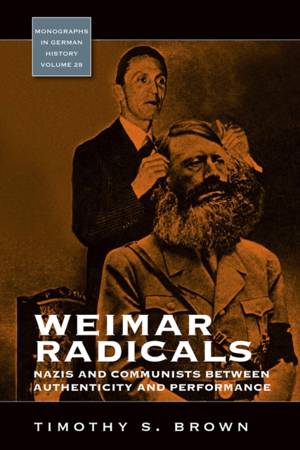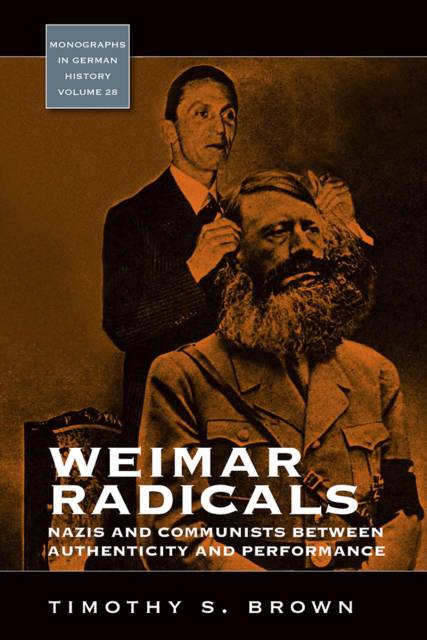
- Afhalen na 1 uur in een winkel met voorraad
- Gratis thuislevering in België vanaf € 30
- Ruim aanbod met 7 miljoen producten
- Afhalen na 1 uur in een winkel met voorraad
- Gratis thuislevering in België vanaf € 30
- Ruim aanbod met 7 miljoen producten
Omschrijving
Exploring the gray zone of infiltration and subversion in which the Nazi and Communist parties sought to influence and undermine each other, this book offers a fresh perspective on the relationship between two defining ideologies of the twentieth century. The struggle between Fascism and Communism is situated within a broader conversation among right- and left-wing publicists, across the Youth Movement and in the "National Bolshevik" scene, thus revealing the existence of a discourse on revolutionary legitimacy fought according to a set of common assumptions about the qualities of the ideal revolutionary. Highlighting the importance of a masculine-militarist politics of youth revolt operative in both Marxist and anti-Marxist guises, Weimar Radicals forces us to re-think the fateful relationship between the two great ideological competitors of the Weimar Republic, while offering a challenging new interpretation of the distinctive radicalism of the interwar era.
Specificaties
Betrokkenen
- Auteur(s):
- Uitgeverij:
Inhoud
- Aantal bladzijden:
- 225
- Taal:
- Engels
- Reeks:
- Reeksnummer:
- nr. 28
Eigenschappen
- Productcode (EAN):
- 9781785333361
- Verschijningsdatum:
- 1/08/2016
- Uitvoering:
- Paperback
- Formaat:
- Trade paperback (VS)
- Afmetingen:
- 150 mm x 226 mm
- Gewicht:
- 317 g

Alleen bij Standaard Boekhandel
Beoordelingen
We publiceren alleen reviews die voldoen aan de voorwaarden voor reviews. Bekijk onze voorwaarden voor reviews.











